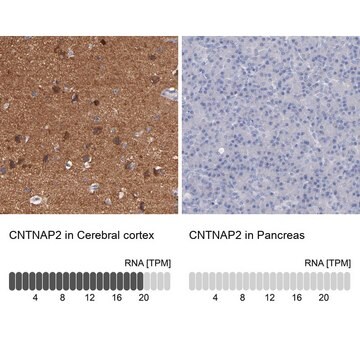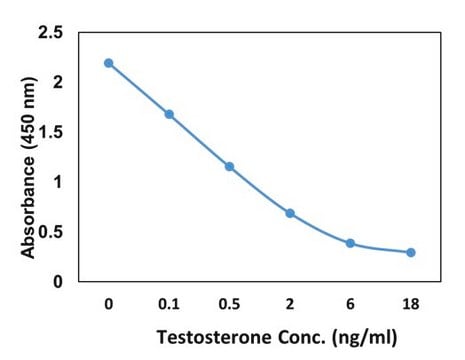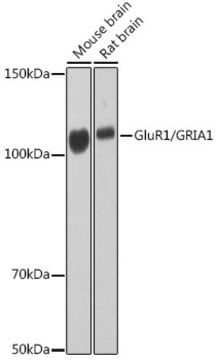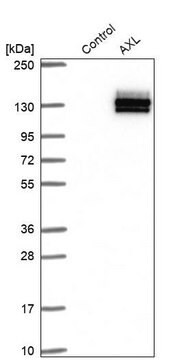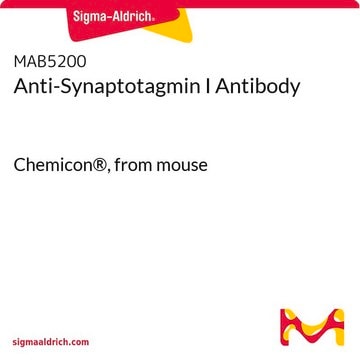C8737
Anti-Caspr2 antibody produced in rabbit
affinity isolated antibody, lyophilized powder
Synonym(s):
Anti-Contactin-Associated Protein 2
About This Item
Recommended Products
biological source
rabbit
Quality Level
conjugate
unconjugated
antibody form
affinity isolated antibody
antibody product type
primary antibodies
clone
polyclonal
form
lyophilized powder
mol wt
antigen 180 kDa
species reactivity
mouse, rat, human
technique(s)
immunohistochemistry: suitable
western blot: 1:200 using rat brain membranes
UniProt accession no.
storage temp.
−20°C
target post-translational modification
unmodified
Gene Information
human ... CNTNAP2(26047)
mouse ... Cntnap2(66797)
rat ... Cntnap2(500105)
General description
Immunogen
Application
Biochem/physiol Actions
Physical form
Disclaimer
Not finding the right product?
Try our Product Selector Tool.
recommended
Storage Class Code
11 - Combustible Solids
WGK
WGK 2
Flash Point(F)
Not applicable
Flash Point(C)
Not applicable
Choose from one of the most recent versions:
Certificates of Analysis (COA)
Don't see the Right Version?
If you require a particular version, you can look up a specific certificate by the Lot or Batch number.
Already Own This Product?
Find documentation for the products that you have recently purchased in the Document Library.
Our team of scientists has experience in all areas of research including Life Science, Material Science, Chemical Synthesis, Chromatography, Analytical and many others.
Contact Technical Service